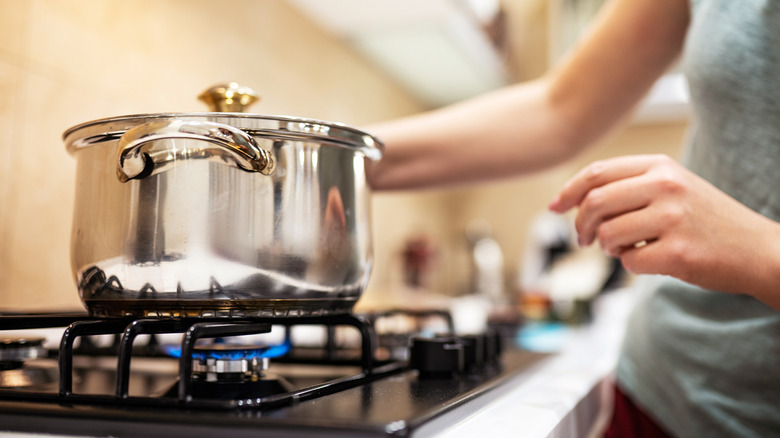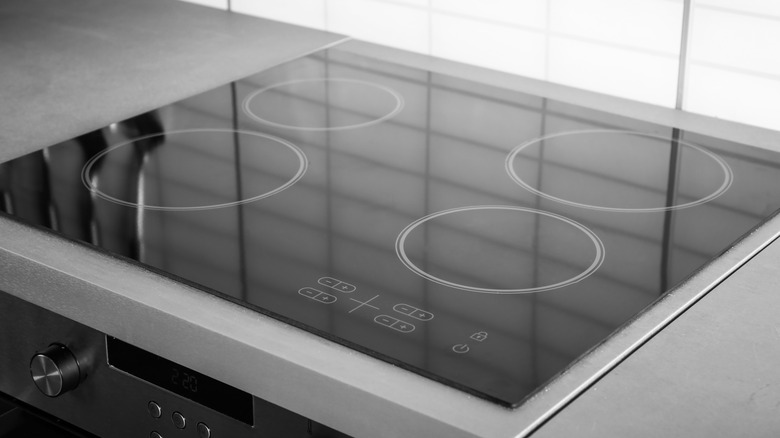Gas Vs. Electric: Which Range Really Gets Hotter?
Walk into any kitchen nowadays, and you're likely to see the same trends: clean and minimal white shaker cabinets, a simple subway-tile backsplash, and maybe some stainless steel appliances to top off the modern look. Or perhaps you prefer a more eclectic vibe, with some colorful cabinetry, boldly patterned tile, and pastel vintage-style appliances. No matter which style you channel in your kitchen, it's your home, and if you're happy with it, that's what counts.
Even if your personal style differs from other kitchens, there's one argument that might keep homeowners divided for all eternity: the great appliance debate. Are you Team Gas or Team Electric?
Gas stoves have long been preferred by home cooks since they're easy to control and offer more flexibility when it comes to techniques like flambéing. The occasional flambé comes at a cost, though. Gas stoves run the risk of a gas leak, and the open flame isn't the safest option for households, especially in comparison to electric stovetops. While electric stoves are safer and more energy-efficient, they aren't flame-friendly like the classic gas range (via BobVila.com).
Despite these issues, many buyers just want to know one simple thing: Which type of range burns hotter — gas or electric? So, if you're in the market for a new range and find yourself stuck scratching your head in the appliance aisle at the hardware store, we're here to break down whether Team Gas or Team Electric wins this heated debate once and for all.
Hotter isn't always better
Despite being the pick for most at-home amateurs and career cooks, gas stoves are not the hotter option. That's part of what makes them so favorable: Unlike electric ranges, the open flame of a gas stove allows some of the heat to escape up the sides of a pot and vent into the air. Since you have the ability to closely control your heat in this fashion, it helps the food cook evenly and makes sure the dish comes out just the way you want it, explains Atherton Appliance. The same is true for boiling water. An electric burner will get hotter faster and bring a large pot of water to boil quicker than a gas range, per Atherton.
Clearly, more heat doesn't equate to a better cooking experience. One Reddit user shared their experience with an electric range in the subreddit AskCulinary. While they agreed with the assessment that an electric burner is hotter once it heats up, they say that "all electric ranges (save induction) go bonkers at high temp settings." Translation? They burn food to a crisp.
At the end of the day, the gas range vs. electric range debate comes down to personal preference. If all you cook at home is grilled cheese and spaghetti, then an electric range may suit your needs just fine — but try not to burn that sandwich.

